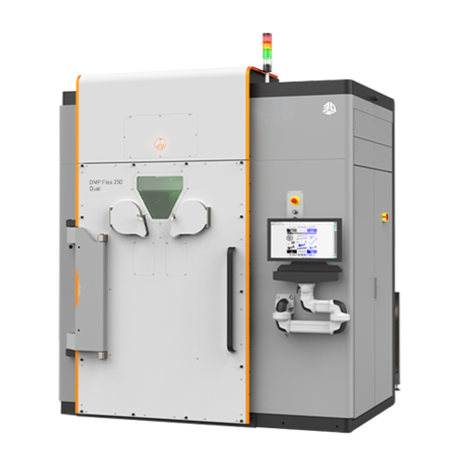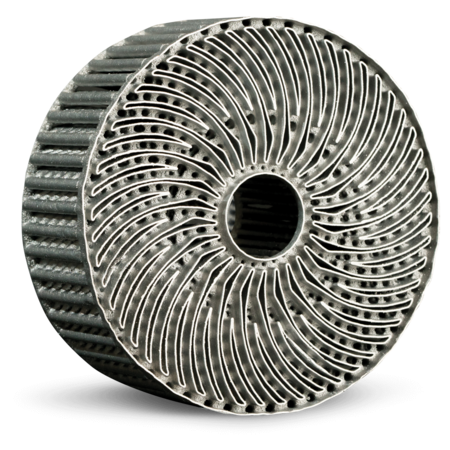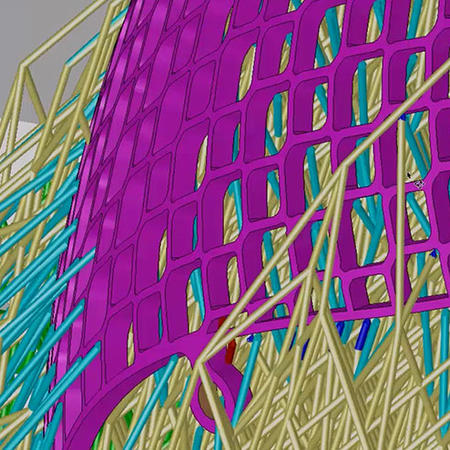The Airbus Defence and Space manufacturing team in Portsmouth, UK, developed innovative designs for the additive manufacturing (AM) of switch assembly networks with AM consultation and production support from 3D Systems. The radio frequency (RF) passive hardware is designated for two Eurostar Neo spacecraft that will join the in-orbit fleet of Eutelsat, a major provider of satellite communications services.
Referencing the program announcement, Gareth Penlington, HOTBIRD payload manager at Airbus said:
“This is recognized as the first large-scale deployment of RF products using [direct metal printing], and it puts us in an industry-leading position for the technology’s application in producing radio frequency components.”
Airbus and 3D Systems have collaborated for many years now, and 3D Systems was brought onto this project early to provide input and support for application development and prototyping, with continued engagement throughout qualification and industrialization. AM was selected for this project due to the design freedom, weight reduction, and part performance optimization it enables. Airbus also cited major labor savings during assembly enabling their teams to focus on more value-added tasks, as well as a significant reduction in the number of individual parts required as reasons for selecting AM.
In addition to high accuracy requirements, the switch assembly networks combined thin walls and sections with large mass concentrations. Experts within 3D Systems’ Application Innovation Group (AIG) contributed decades of design for additive manufacturing and post-processing expertise for direct metal printing (DMP) applications. As the pioneers of the AM industry and with in-house aerospace application experts of its own, the AIG helped Airbus assess and avoid risks throughout design and engineering. To enable the first large-scale deployment, 3D Systems helped Airbus develop an effective and reliable manufacturing flow for the parts.
Commenting on the hidden driver of success, Koen Huybrechts, Aerospace Application Development Manager at 3D Systems’ Application Innovation Group, said:
“Airbus thinks bigger with each new RF project, which is exactly what we like. Our cooperation has naturally evolved into a true partnership. We invest in our customers by educating them about the opportunities and limitations of our technologies. With curious customers like Airbus, this leads to continuous co-creation and innovation.”
The final switch assembly networks were printed in LaserForm® AlSi10Mg aluminum material on DMP Flex 350 machines at 3D Systems’ Customer Innovation Center in Leuven, Belgium. This facility is certified according to aerospace quality systems standards (AS9100D) and has the people and resources to support large-scale industrialization projects like this one.
3D Systems’ AIG experts take a phased approach to qualified production, helping companies establish and control their AM production workflow in a methodical and proven process. 3D Systems’ DMP solutions combine hardware, software, and material to deliver the highest print quality and reliability. The best-in-class oxygen levels (<25 ppm) from the inert printing atmosphere of 3D Systems’ DMP machines ensure high chemical purity and longer stable material quality.
Collaboration to Realize Industrialization of Complex Metal AM Parts
Work between Airbus and 3D Systems is ongoing. The highlights of this project include:
- DfAM consultation and co-engineering
- Collaboration to industrialize optimized RF components
- Delivery of a significant number of complex metal AM parts


